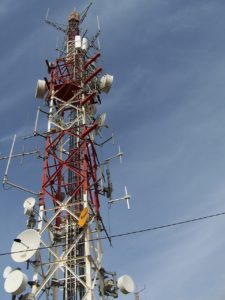Now that Afghan Wireless has launched its great new prepaid data roaming service, which lets subscribers access the Internet on their mobile phones while travelling internationally, you may be encountering some new telecommunications terms and acronyms you haven’t seen before. Read on for a helpful guide to some of the most common acronyms used in mobile data roaming.
3G
Third Generation mobile network standards. Also frequently referred to as “mobile broadband,” 3G telecommunication networks support services that have a faster data transfer rate than previous network versions, typically at least 200 KB/second. This allows for better voice quality on calls, and it permits a host of applications, like video calls and video streaming, that rely on rapid data transfer. 3G technology employs standards that comply with the International Mobile Telecommunications-2000 (IMT-2000) specifications created by the UN’s International Telecommunication Union.
CAMEL
 Customized Applications for Mobile networks Enhanced Logic. Based on Intelligent Network standards, CAMEL is a set of standards that can be used on either GSM or 3G networks, and that allow for effective pre-paid services to be offered to roaming subscribers. For example, CAMEL lets users send and receive voice calls and SMS and MMS messages from abroad, and enables other features like no-prefix dialing, where the user dials the same number regardless of what country they are in when placing the call.
Customized Applications for Mobile networks Enhanced Logic. Based on Intelligent Network standards, CAMEL is a set of standards that can be used on either GSM or 3G networks, and that allow for effective pre-paid services to be offered to roaming subscribers. For example, CAMEL lets users send and receive voice calls and SMS and MMS messages from abroad, and enables other features like no-prefix dialing, where the user dials the same number regardless of what country they are in when placing the call.
CDR
Call Detail Record. This is the written record of the origin, destination, time, date, and duration of a voice call or an SMS. Telecommunications partners must share this information with each other when subscribers use roaming services in order to ensure correct billing and settlement.
GPRS
General Packet Radio Service. This is a packet-based mobile data service—a type of service that provides IP capability to remote users via satellite—on the GSM (Global System for Mobile Communications) standard. It was once commonly used by mobile phones accessing the Internet, but has now mainly been replaced by 3G.
HLR
Home Location Registers. These databases store customer profiles and communicate with Visiting Location Registers (VLR; see below) abroad to allow for subscriber roaming.
IOT
Inter Operator Tariff. When a roaming customer makes calls or uses data services on a visited network (the network of the local area in which they are traveling), the operator of the visited network charges a service fee, the IOT, to the customer’s home network operator.
IP
Internet Protocol. This is the system protocol that enables all Internet access and web-based services and applications. It is used together with 3G (or GPRS) data transfers.
KB
Kilobyte. A unit of measurement for data uploads and downloads. A kilobyte represents 1,000 bytes of data—that’s about the equivalent of two to three paragraphs of plain text.
MB
Megabyte. The next biggest measurement unit, one megabyte equals 1,000 KB, or close to 900 pages of plain text.
MMS
 Multimedia Messaging Service. A standard of mobile messaging, MMS is an extension of the SMS protocol that allows users to send messages between mobile devices. The key feature of MMS messages is that they can include sound, images, or video as well as text.
Multimedia Messaging Service. A standard of mobile messaging, MMS is an extension of the SMS protocol that allows users to send messages between mobile devices. The key feature of MMS messages is that they can include sound, images, or video as well as text.
MO
Mobile Originated. This term is used to describe any communication, whether a voice call, message, or data transfer, that a mobile phone initiates, as opposed to communications that originate on a landline or a desktop computer.
MT
Mobile Terminated. Similar to the term MO above, this term describes any communication that ends, or terminates, on a mobile phone. For example, if you receive an SMS message on your mobile phone, that is an MT message because your phone is the message’s termination point.
MTR
Mobile Termination Rate. Mobile operators charge this service fee whenever a call is terminated on their network.
PSD
Packet Switched Data. This is the term for data services that operate with a combination of 3G/GPRS and IP. Push e-mail, or e-mail that is accessed on a mobile device, is a common example of PSD services.
SMS
Short Message Service. This popular service allows short messages to be sent between mobile phones. Usually, these messages are simply called “texts” as they contain plain text only.
TAP
Transferred Account Procedure. This is the system under which partner operators can exchange roaming billing information (CDRs) concerning their customers; it provides a standard process framework for roaming operating partners to charge each other the correct and necessary fees for provision of networks and services to roaming customers.
VLR
Visiting Location Registers. These local databases temporarily store information about roaming customers. They then communicate with the HLRs of customers’ home networks; this is what allows roaming to take place.

